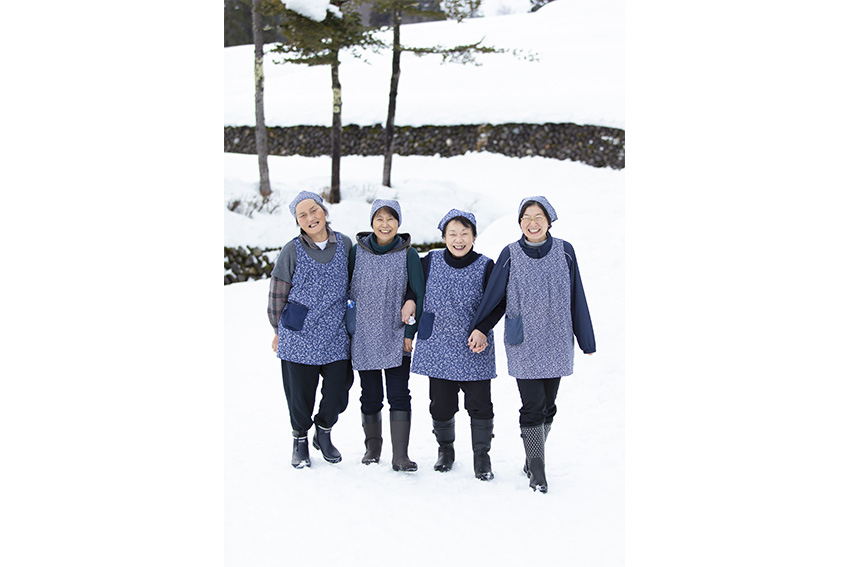Founded in 2019, Japanese koji manufacturer Uonuma Jozo is innovating the food industry. The company is on a mission to spread the knowledge of fermented goods by expanding its outreach through overseas collaborations.

By Bernard Thompson and Cian O Neill
Uonuma Jozo’s factory base lies in the farming city of Uonuma, around 90 minutes from Tokyo and one hour from Niigata city. The company established its factory in Uonuma because the city has a unique microclimate due to being surrounded by mountains, as well as its cold nights and warm days. Tatsuya Ito, factory manager of Uonuma Jozo, points out how such conditions provide the basis for a unique-tasting rice, Koshihikari, Japan's most famous variety of rice. He highlights that “the region's rich soil and clean water sources, in addition to its seasonal and temperature changes, create a perfect environment for producing high-quality rice. This results in a natural sweetness and good consistency in the rice itself.” Uonuma Jozo uses this high-quality rice to manufacture its koji products. Koji is created when koji mold is added to steamed grains such as rice, barley and soy bean, then left to breed in humid conditions. Koji is used in the production of miso and amazake, amongst many other goods, and is a natural additive that improves the flavor of products.
Uonuma Jozo’s mission is to spread the knowledge of fermented goods like koji. Its products are divided into two brands: Marukome and Uonuma Jozo. The company combines Marukome’s expertise in miso fermentation with Uonuma Jozo’s brewing skills. This partnership has resulted in innovative products that blend the flavors of miso and amazake.
The company’s product line includes koji amazake, a traditional Japanese drink made from rice koji and steamed rice. Mr. Ito explains the intricacies of production, stressing that “producing amazake is a very sensitive process. The rice must be even throughout the entire process to prevent disparities in the flavoring at the end.”
Another of Uonuma Jozo’s popular products is its salted koji (shio koji), which is used for marinating meat and fish to make them tender before cooking. The company also offers vegan alternatives to animal-based products, placing its focus on meeting the expectations of its customers across the world—particularly consumers’ growing awareness of living a healthy lifestyle. It is expanding its product base to offer eco-friendly and natural products that help its customers to do just that. Mr. Ito points out: “When it comes to new products, even though our rice koji milk is not animal-derived, it tastes very good. Some people may have allergies or may be lactose intolerant, which prevents them from drinking animal-derived milk. Introducing a similar product using rice koji provides customers with a vegan alternative.” Another of its products is koji syrup, a safe alternative for people who are allergic to bee honey. Not only is koji syrup safe for allergies, but it does not include sugar, making it a healthier alternative as well. Uonuma Jozo’s koji syrup made headlines last year, when it was used in chocolatier Hironobu Tsujiguchi’s chocolate. Mr. Tsujiguchi received a Gold Tablet for his chocolate at the annual Salon du Chocolat festival in Paris. Mr. Ito notes that the company collaborates as much as possible with many food manufacturers that are looking to learn more about koji and implement it in their production processes.

Uonuma Jozo takes sustainability very seriously, putting emphasis on preventative measures rather than recycling. X-ray inspection technology and foreign matter removal equipment are used in each step of the production process to address this issue. Not only is the company strongly committed to sustainability, but it is also dedicated to respecting Uonuma’s cultural heritage through its preservation of traditional techniques. As Mr. Ito explains: “Uonuma is famous for its traditional cultivation methods, which are very rare in Japan today. We preserve these cultural manufacturing techniques on our premises as they relate to the history of Japan. This approach is quite rare as many Japanese companies have modernized their processes. We want to continue to introduce traditionally-made Japanese products such as amazake to as many people as possible by respecting and refining these traditions.”
An interesting feature of Uonuma Jozo’s factory is its snow room. Uonuma is surrounded by mountains and is famous for its snow. The company stores the snow, which acts as a natural fridge. The factory also has a vent downstairs which ensures that the cold air blows around the refrigerated area. As the snow takes a long time to melt, it has a long-lasting cooling effect, making it perfect for natural preservation purposes. Every year, the snow room is thoroughly cleaned and refilled with moisture-laden snow.
Uonuma Jozo spent nearly a year filming the factory site as part of a documentary that showcases the culture, climate and charm of the people who live in Uonuma. Mr. Ito elaborates further on the importance of the factory being established in Uonuma: “The reason we created this facility was so that people from outside the prefecture—including the Tokyo metropolitan area—can come for factory tours and sightseeing. We believe that we should aim to be a presence that is loved by local residents.”
Strategies like this to support regional revitalization are an important aspect of Mr. Ito’s job. As there is a constant flow of people leaving the rural areas and going to work in the big cities, Uonuma Jozo is trying to do the opposite and encourage people to work in the local area. The company conducts tours for elementary school students to go to the factory and study amazake manufacturing. Mr. Ito believes that once you adopt the knowledge and transfer it to young people, you can help revitalize the region and contribute to the local area. Incentives such as these to attract young people to Uonuma seem to have been successful, as the average age of the company’s workers is 23 years old.
Gender equality is also taken into consideration to help revitalize the region. The firm has already reached gender parity, which Mr. Ito highlights as unusual in Japan. He emphasizes: “There is a large number of men working on Japanese production sites. However, we wanted to offer equal conditions for anyone to come and work for us. We offer a women-friendly working environment to prospective employees. It makes our company more appealing, as everyone can do the same job regardless of their gender. I would even like to see my daughter working for the company in the future.”
Given rice koji’s unique properties have attracted attention around the world, Uonuma Jozo is looking to expand its outreach by exploring how the material can be utilized through collaborations overseas. Mr. Ito notes: “People around the globe are very aware of the importance of a healthy lifestyle. We would like to help them fulfill their expectations.” He is confident that Uonuma Jozo’s products will be sought after overseas, particularly in developed areas such as Europe and the United States, highlighting that once the company acquires the necessary certifications to dispatch products overseas, it will be able to capture many markets.
To hear more from President Tatsuya Ito of Marukome, check out this interview with him
0 COMMENTS